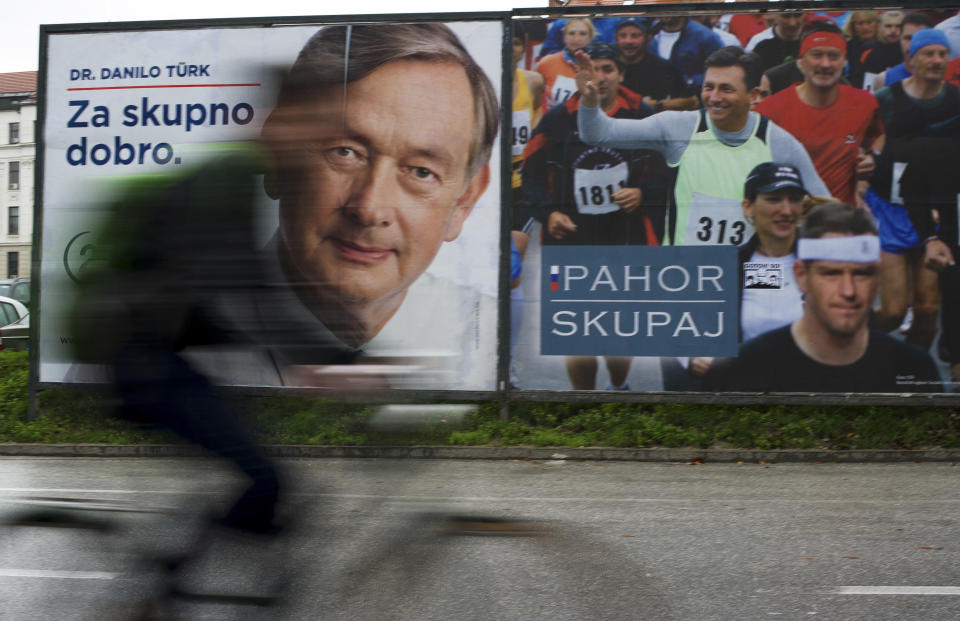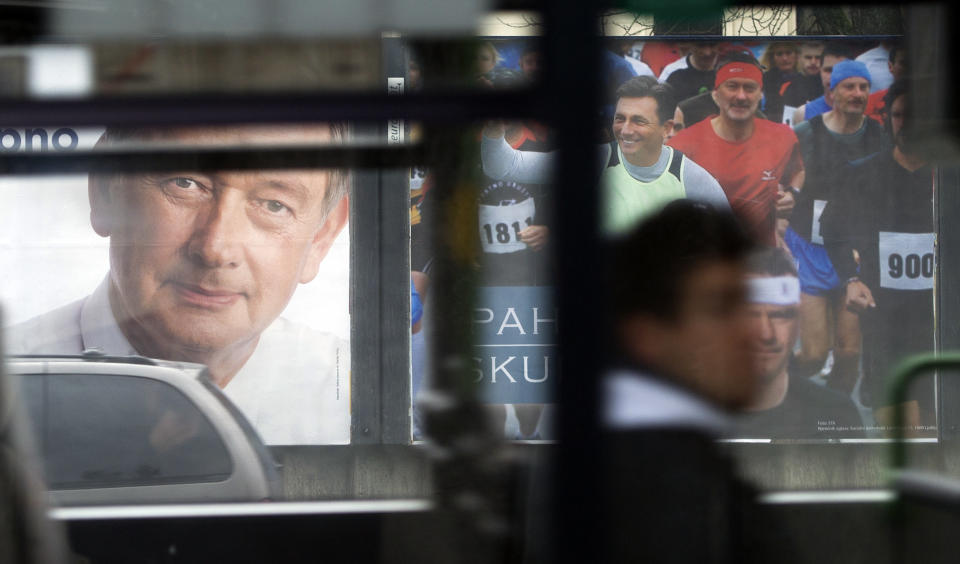Tensions soar ahead of Slovenia presidential vote
LJUBLJANA, Slovenia (AP) — Thousands joined anti-government protests in Slovenia on Friday as tensions soared ahead of this weekend's presidential runoff in the small, economically struggling EU nation.
Carrying banners that read "You are finished" and "Thieves," about 8,000 people braved the drizzle and cold to express their discontent with government cost-cutting measures and other reforms designed to avoid an international bailout.
Police deployed heavily around parliament and other government buildings in the capital, Ljubljana, blocking the city center to avoid a repeat of the violence that marked protests earlier this week in Maribor, the country's second-largest city.
Prime Minister Janez Jansa warned in a statement that Slovenia is "soaked in gasoline and a single match can easily cause a fire."
Slovenia is facing one of the worst recessions of the 17 nations that use the euro currency. Its economy has shrunk more than 8 percent since 2009 and continues to decline, resulting in a sharp drop in exports and living standards and a surge in unemployment, which now stands about 12 percent.
The vote on Sunday pits incumbent President Danilo Turk against former prime minister Borut Pahor.
Many among Slovenia's 2 million people are angry with their leaders' inability to join forces and pull the country out of its economic crisis. They are also angry about austerity measures — spending cuts and tax hikes — which they say target the poor rather than the rich.
According to an opinion poll published Friday in the Delo daily, Pahor will win about 55 percent of the vote, while Turk will garner 24 percent. The poll was conducted among 780 people with a 2.5 percent margin of error.
Thousands demanding the resignation of Maribor's mayor over corruption allegations had clashed with police, who used tear gas to disperse them — an unusually violent scene in this otherwise calm Alpine country.
Pahor told the AP on Friday that the protests "signal a lack of confidence" in government institutions.
"It is important that by not using force we give people hope that all problems can be solved," he said.
The 49-year-old has supported some of the government's reform measures, unlike current president Turk, who has been a fierce critic.
____
Jovana Gec in Belgrade, Serbia, and Amer Cohadzic and Eldar Emric in Ljubljana contributed to this report.

